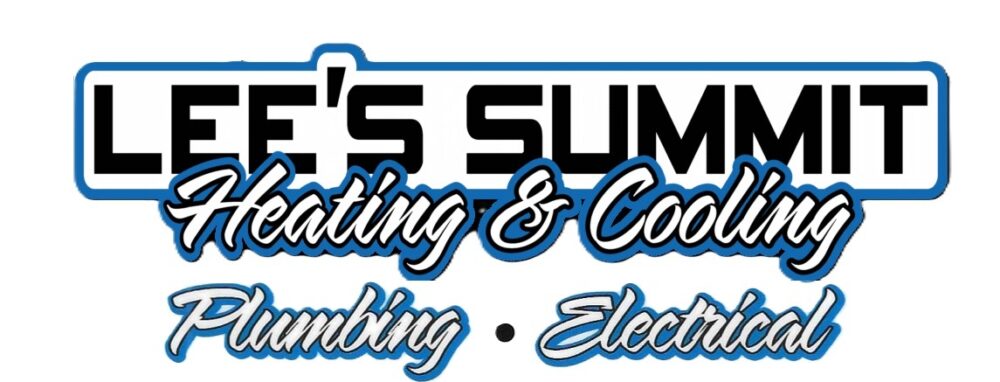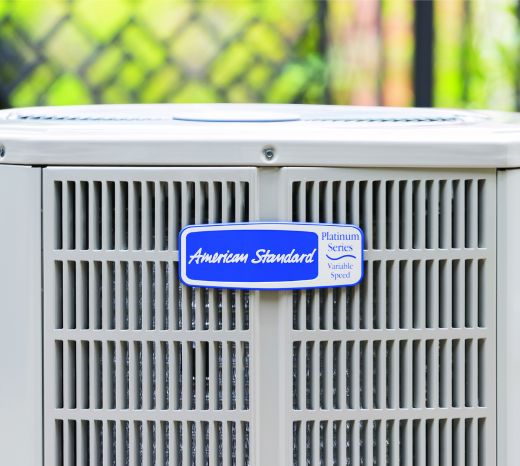Advice For Homeowners, Air Conditioner Tips
Lee’s Summit Heating and Cooling has over three decades of experience with HVAC maintenance, installations, plumbing, and electrical services throughout Lee’s Summit, MO. Let us walk you through the differences between fancy air filters and UVC air purifiers so you can choose the best one for your needs.

Is a “fancy” furnace filter comparable to a dedicated whole-home air purifier? Below, we show you what each of these technologies does to improve your indoor air quality so you can choose the best option for your home.
Next Steps:
Table of Contents
- Air Filters
- What They Do
- How They Work
- What They Accomplish
- UVC Air Purifiers
- What They Do
- How They Work
- What They Accomplish
- Key Comparisons
- Comparison Chart
- Installation
- Maintenance
- Cost Considerations
- FAQ
Air Filters
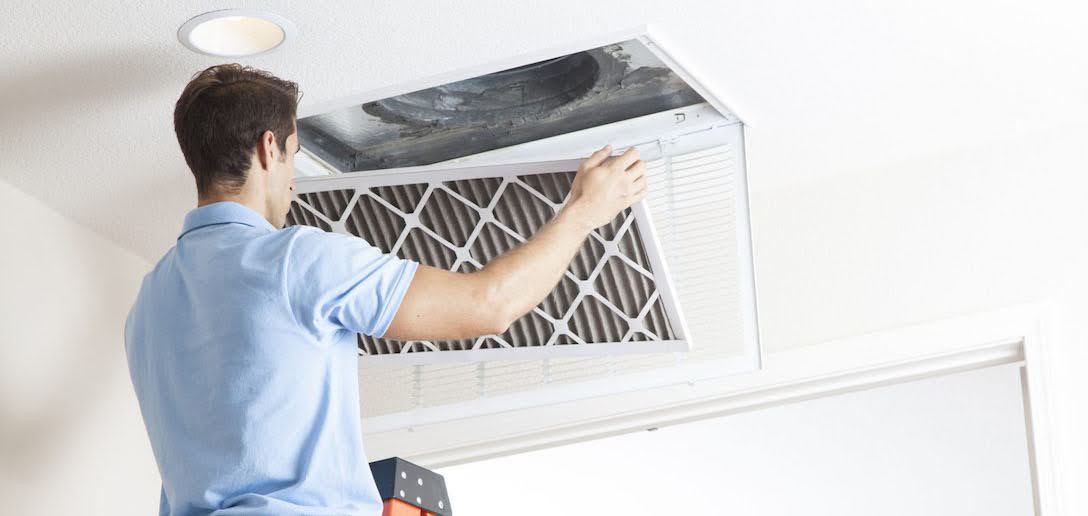
What They Do
High-quality air filters—including High-Efficiency Particulate Air (HEPA) filters—capture and remove airborne particles like dust, pollen, some bacteria, and pet dander to improve indoor air quality and protect your HVAC system’s components.
How They Work
Most high-end air filters are made up of an intricate mesh of densely packed fibers, designed to capture microscopic particles as air flows through. This makes them more effective than standard HVAC filters, which are less dense and can let smaller particles pass through.
Pros
These filters remove particles that can make the air in your home feel dirty and difficult to breathe. As a result, they:
- Reduce irritation
- Lower the risk of respiratory conditions like asthma
- Improve your indoor air quality
Cons
While fancy furnace filters will noticeably improve the quality of your home’s indoor air, they aren’t as useful for controlling diseases or other illnesses—since microorganisms can pass through the gaps in the filter material.
UVC Air Purifiers
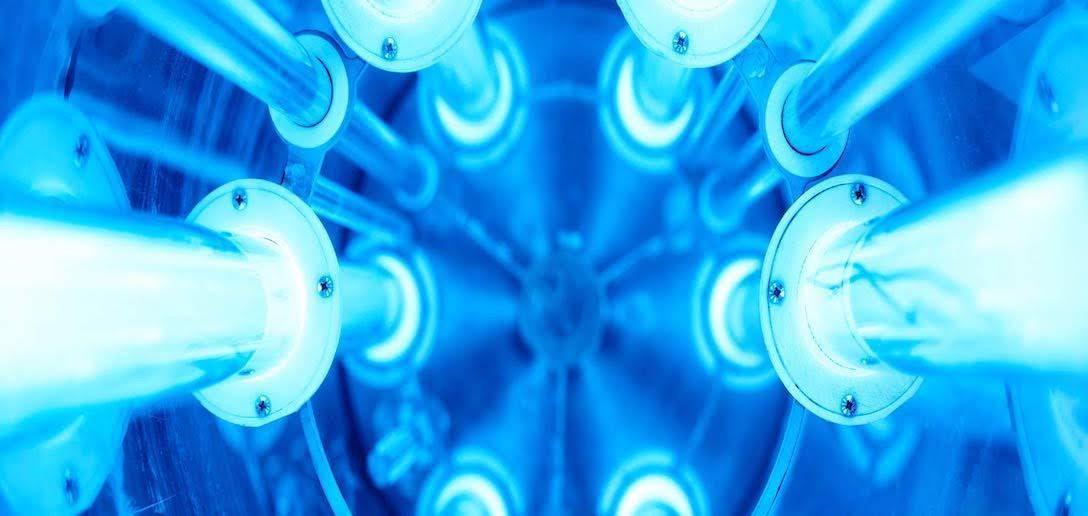
What They Do
UVC air purifiers harness the power of ultraviolet light to disinfect and neutralize harmful microorganisms.
How They Work
Ultraviolet-C (UVC) light possesses the ability to disrupt the DNA structure of bacteria, viruses, and other pathogens, rendering them incapable of reproduction and ultimately destroying them.
Pros
By eliminating the transmission vectors for pathogens, UVC purifiers effectively:
- Reduce the risk of airborne illnesses
- Contribute to a more sterile environment
Cons
While purifiers are useful for controlling the spread of infections and diseases, they won’t do much to keep larger particles like pet dander, dust, or smoke out of the air.
Key Comparisons
As you’ve no doubt noticed already, these two technologies actually do different things.
- Fancy air filters trap tangible particles (as small as 0.3 microns in size) to help make the air in your home feel fresh and easy to breathe.
- UVC purifiers destroy microorganisms that can transmit airborne illnesses to reduce transmission and make your home’s air more sterile.
Comparison Chart
Here’s a chart that makes these differences clearer:
| High-End Air Filters | UVC Purifiers | |
| Purpose | Improving indoor air quality by trapping dust, pollen, and other particles | Removing airborne pathogens such as bacteria and viruses |
| Technology Used | HEPA filtration, Activated Carbon, Ionizers, Pre-Filters | UVC light to destroy microorganisms |
| Effectiveness | Highly effective for particles, varying effectiveness for gasses and odors | Effective for pathogens, no effect on non-biological pollutants |
| Average Cost | Usually under $100 | Starting at several hundred dollars |
| Ease of Installation | Can be purchased to replace typical furnace filters | Professional installation recommended |
| Required Maintenance | Regular filter replacement or cleaning (for disposable vs. reusable models) | Bulb replacement, cleaning during professional HVAC tune-ups |
Below, we go into more detail about the upkeep required for each system, as well as the costs involved.
Installation
Most HEPA filters and other fancy options are made to replace the filters that come standard in various furnace models. That means installing them is usually a DIY job—just pop out your standard filter and put the new one in its place.
UVC purifiers are usually installed in your furnace, which means the job is best left to our professionals. We have the expertise to make sure the purifier is placed correctly and that no sensitive components in your HVAC system are damaged. Additionally, some furnaces may require modifications before UVC purifiers can be integrated, and only a licensed HVAC technician can perform them safely.
Maintenance
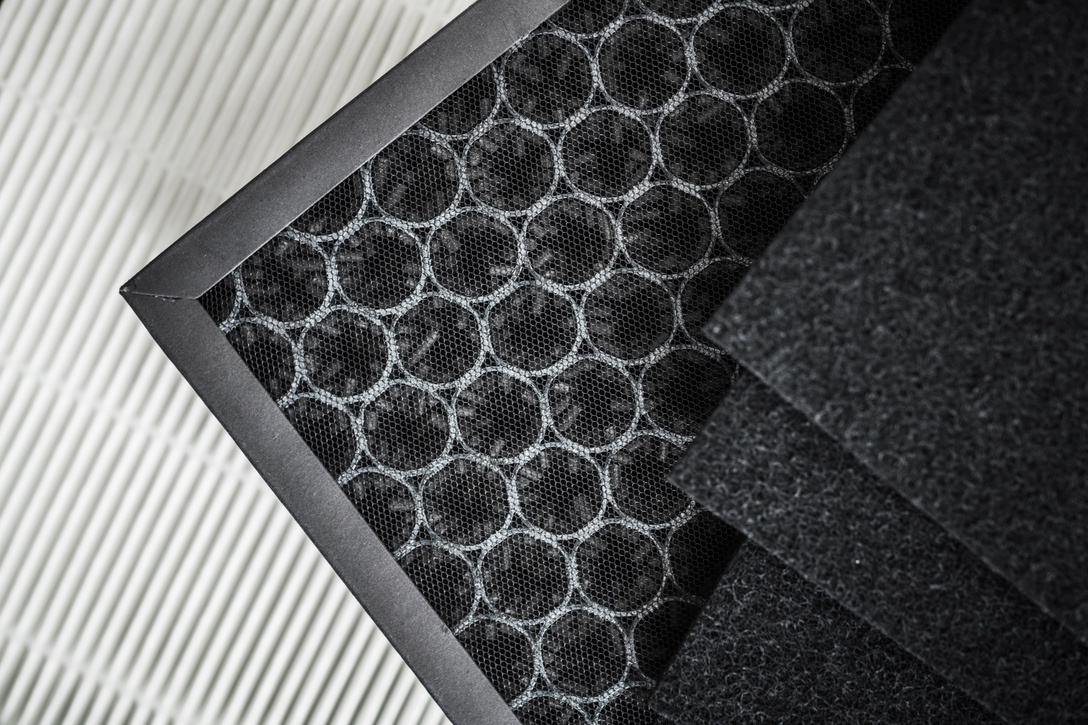
High-end filters still need to be replaced (if they’re disposable) or cleaned (if they’re reusable). The interval at which you should replace or clean your filters depends on the kind you buy—see the FAQ at the end of this post for more information.
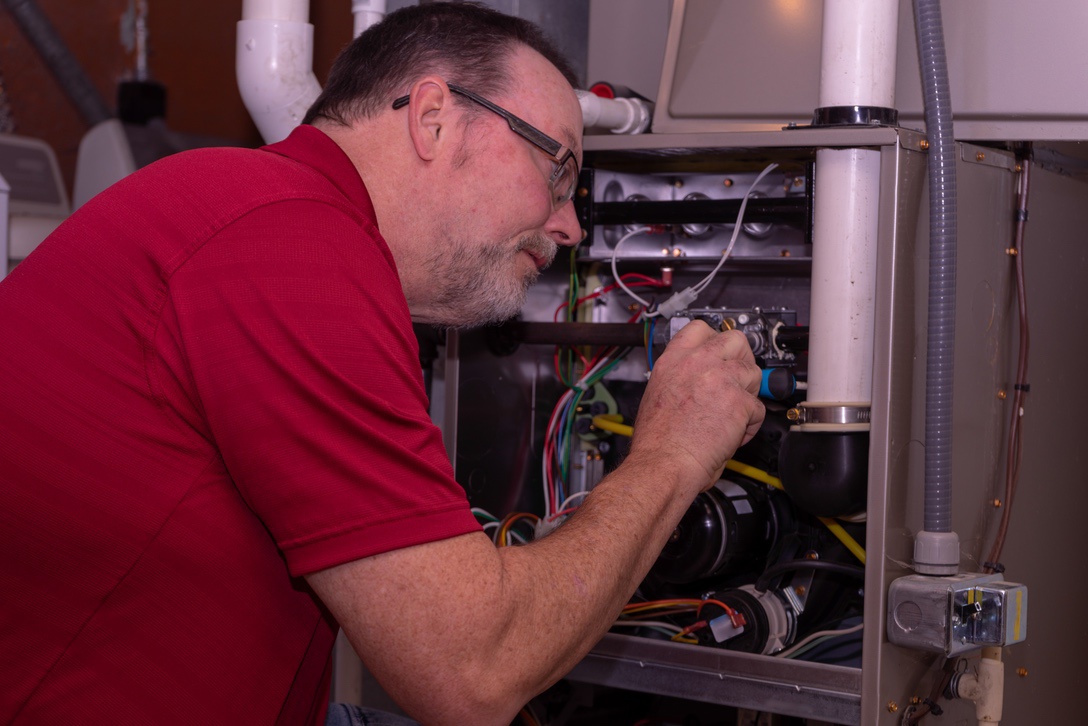
UVC purifiers are permanent additions to your HVAC system, but they still need occasional cleaning. We’ll take care of this during your annual furnace tune-ups. Other than that, you’ll just need to worry about replacing the UVC bulb when it burns out (usually every 1-2 years).
Costs
Fancy air filters cost less upfront than UVC purifiers, but their impact on household energy efficiency is also minimal—meaning you won’t likely see major electricity savings from using them.
UVC purifiers cost more at the front end, but their ongoing upkeep costs are lower than what you’ll spend consistently replacing filters.
Choosing the Air Quality Solutions that Serve Your Home Best
Comparing fancy air filters to UVC air purifiers is actually a bit of an “apples to oranges” deal—these are different products with different uses, and the air in your home will actually be cleanest if you use both.
Still, if you can’t make both upgrades (or don’t need to), use the guide above to make sure you choose the solution that addresses the specific indoor air quality challenges you have. Our team provides leading air filtration and air purification products, so contact Lee’s Summit today for a recommendation and an accurate quote.
Frequently Asks Questions about Fancy Air Filters & UVC Air Purifiers
How often do high-end air filters need to be replaced or cleaned?
HEPA filters typically need to be replaced every 6-12 months depending on usage and air quality.
Carbon pre-filters should be replaced more frequently, approximately every 3 months.
Reusable models should be cleaned at least once every three months (and up to once a month for optimal results).
What makes a fancy air filter better than a standard HVAC filter?
- Enhanced air quality by effectively capturing smaller particles (as small as 0.3 microns), including dust, pollen, and certain bacteria.
- Reduced risk of respiratory issues and allergies due to better filtration of airborne irritants.
- Potential for longer HVAC system life by preventing finer particles from entering and damaging the system.
What types of air purifiers does Lee’s Summit Heating and Cooling install?
At Lee’s Summit, we install high-end air purifiers from the following brands:
- Air Scrubber Plus
- Premier-One
- I-Wave
How long does installing an air purifier normally take?
The time it takes to install a new air purifier in your home will depend on numerous factors, including the installation location and the type of air purifier we’re installing. Most installations can be performed in as little as a few hours to a single day, but we’ll let you know if there are any factors that could cause your installation to take longer.
Why choose a high-end air filter over a UVC purifier, and vice versa?
Choose a high-end air filter if your primary concern is removing particulate matter like dust, pollen, and pet dander.
Opt for a UVC purifier if your main goal is to reduce airborne pathogens like bacteria and viruses.
Use both technologies for the most comprehensive air quality improvement.
